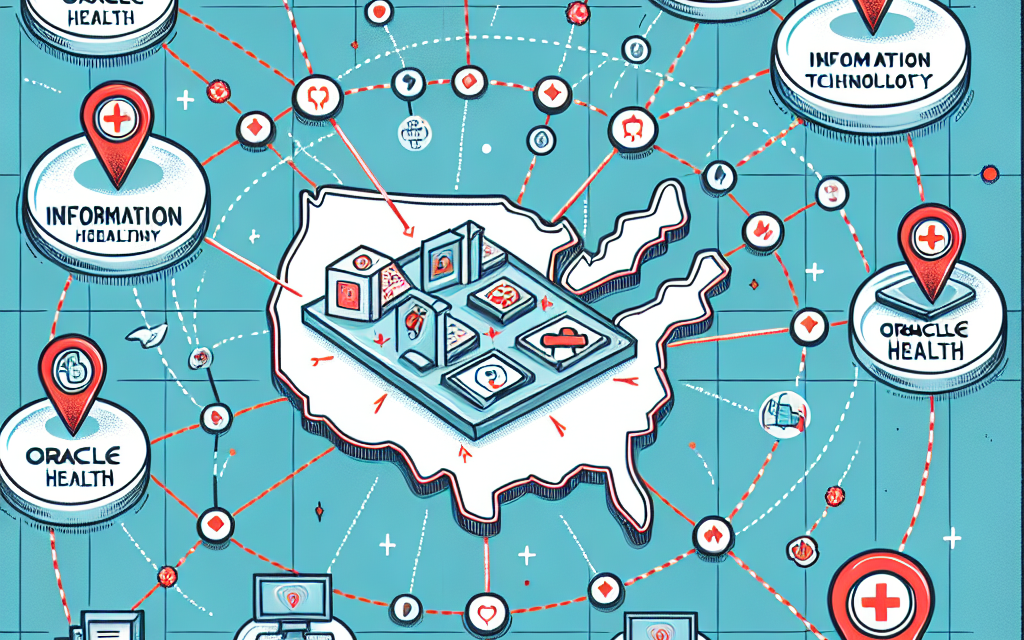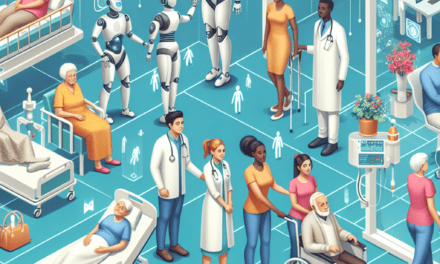VA Expands Oracle Health EHR Implementation to Nine More Locations
The U.S. Department of Veterans Affairs (VA) has recently announced the expansion of its Oracle Health Electronic Health Record (EHR) implementation to nine additional locations. This strategic move is part of a broader initiative to modernize the VA’s healthcare system, improve patient care, and streamline operations. In this article, we will explore the implications of this expansion, the technology behind Oracle Health EHR, the challenges faced during implementation, the benefits for veterans, and the future of EHR systems in the VA.
The Significance of EHR Systems in Modern Healthcare
Electronic Health Records (EHR) have become a cornerstone of modern healthcare, providing a digital version of patients’ paper charts. They are crucial for improving the quality of care, enhancing patient safety, and increasing operational efficiency. The VA’s decision to expand its EHR system is a testament to the importance of these digital tools in delivering high-quality healthcare services.
Here are some key reasons why EHR systems are significant:
- Improved Patient Care: EHRs provide healthcare providers with real-time access to patient information, enabling better decision-making and personalized care.
- Enhanced Coordination: EHRs facilitate communication among different healthcare providers, ensuring that all members of a patient’s care team have access to the same information.
- Data Analytics: EHR systems allow for the collection and analysis of health data, which can be used to identify trends, improve treatment protocols, and enhance public health initiatives.
- Increased Efficiency: By digitizing records, EHRs reduce the time spent on administrative tasks, allowing healthcare providers to focus more on patient care.
- Regulatory Compliance: EHR systems help healthcare organizations comply with various regulations and standards, such as HIPAA, by ensuring that patient data is securely stored and managed.
The expansion of the Oracle Health EHR system within the VA is a significant step towards harnessing these benefits for veterans and their families.
Understanding Oracle Health EHR Technology
Oracle Health EHR is a comprehensive electronic health record system designed to meet the needs of healthcare organizations. It integrates various functionalities, including patient management, clinical documentation, and billing, into a single platform. This integration is crucial for providing seamless care and improving operational efficiency.
Key features of Oracle Health EHR include:
- Interoperability: Oracle Health EHR is designed to work with other health information systems, allowing for the exchange of data across different platforms. This is particularly important for the VA, which collaborates with various healthcare providers.
- User-Friendly Interface: The system features an intuitive interface that simplifies navigation for healthcare providers, reducing the learning curve and increasing adoption rates.
- Data Security: Oracle prioritizes data security, implementing robust measures to protect sensitive patient information from breaches and unauthorized access.
- Customizable Workflows: The EHR system allows healthcare organizations to customize workflows to fit their specific needs, enhancing efficiency and productivity.
- Analytics and Reporting: Oracle Health EHR includes advanced analytics tools that enable healthcare providers to generate reports, track performance metrics, and identify areas for improvement.
The technology behind Oracle Health EHR is designed to support the unique needs of the VA, ensuring that veterans receive the highest quality of care possible.
Challenges in Implementing EHR Systems
While the benefits of EHR systems are clear, the implementation process can be fraught with challenges. The VA’s expansion of the Oracle Health EHR system to nine more locations is no exception. Understanding these challenges is crucial for ensuring a successful rollout.
Some common challenges faced during EHR implementation include:
- Resistance to Change: Healthcare providers may be resistant to adopting new technologies, especially if they are accustomed to traditional paper-based systems. This resistance can hinder the implementation process.
- Training and Support: Adequate training and ongoing support are essential for successful EHR implementation. Without proper training, healthcare providers may struggle to use the system effectively.
- Data Migration: Transitioning from a legacy system to a new EHR can be complex, particularly when it comes to migrating existing patient data. Ensuring data integrity during this process is critical.
- Interoperability Issues: Ensuring that the new EHR system can communicate with other systems is vital for seamless care. Interoperability challenges can lead to fragmented care and data silos.
- Cost Considerations: Implementing a new EHR system can be costly, and securing funding for the transition can be a significant hurdle for healthcare organizations.
The VA has recognized these challenges and is taking proactive steps to address them as it expands the Oracle Health EHR system to additional locations.
Benefits for Veterans and Healthcare Providers
The expansion of the Oracle Health EHR system to nine more VA locations is expected to yield numerous benefits for both veterans and healthcare providers. These benefits are essential for improving the overall quality of care delivered to veterans.
Some of the key benefits include:
- Enhanced Access to Care: With a unified EHR system, veterans will have improved access to their health information, making it easier for them to engage in their care and communicate with providers.
- Improved Care Coordination: The integration of health records across different locations will facilitate better coordination among healthcare providers, ensuring that veterans receive comprehensive and continuous care.
- Streamlined Processes: The Oracle Health EHR system will help streamline administrative processes, reducing wait times and improving the overall patient experience.
- Data-Driven Decision Making: Healthcare providers will have access to real-time data and analytics, enabling them to make informed decisions about patient care and treatment options.
- Increased Patient Safety: EHR systems can help reduce medication errors and improve patient safety by providing alerts and reminders for healthcare providers.
These benefits underscore the importance of the VA’s investment in modernizing its healthcare system through the expansion of the Oracle Health EHR implementation.
The Future of EHR Systems in the VA
The expansion of the Oracle Health EHR system is just one step in the VA’s ongoing efforts to modernize its healthcare delivery. As technology continues to evolve, the future of EHR systems in the VA will likely include several key trends and developments.
Some potential future directions for EHR systems in the VA include:
- Increased Use of Artificial Intelligence: AI technologies can enhance EHR systems by providing predictive analytics, automating administrative tasks, and improving clinical decision support.
- Telehealth Integration: The integration of telehealth services into EHR systems will enable veterans to access care remotely, improving convenience and access to services.
- Patient Engagement Tools: Future EHR systems may include more robust patient engagement tools, allowing veterans to take a more active role in their healthcare through secure messaging, appointment scheduling, and access to educational resources.
- Focus on Social Determinants of Health: EHR systems may increasingly incorporate data related to social determinants of health, enabling healthcare providers to address the broader factors that impact veterans’ health and well-being.
- Continuous Improvement and Feedback Loops: The VA may implement mechanisms for continuous feedback from healthcare providers and veterans to ensure that the EHR system evolves to meet their needs effectively.
The future of EHR systems in the VA holds great promise for enhancing the quality of care delivered to veterans and improving the overall efficiency of the healthcare system.
Conclusion
The expansion of the Oracle Health EHR implementation to nine more locations within the VA represents a significant step forward in modernizing healthcare for veterans. By leveraging advanced technology, the VA aims to improve patient care, enhance coordination among providers, and streamline operations. While challenges remain in the implementation process, the potential benefits for veterans and healthcare providers are substantial.
As the VA continues to invest in EHR systems, it is essential to remain focused on the needs of veterans and the healthcare providers who serve them. The future of EHR systems in the VA is bright, with opportunities for innovation and improvement that can lead to better health outcomes for those who have served our country.
In summary, the expansion of Oracle Health EHR is not just a technological upgrade; it is a commitment to providing veterans with the high-quality care they deserve. As the VA navigates this transition, it will be crucial to address the challenges of implementation while maximizing the benefits of this modern healthcare solution.





